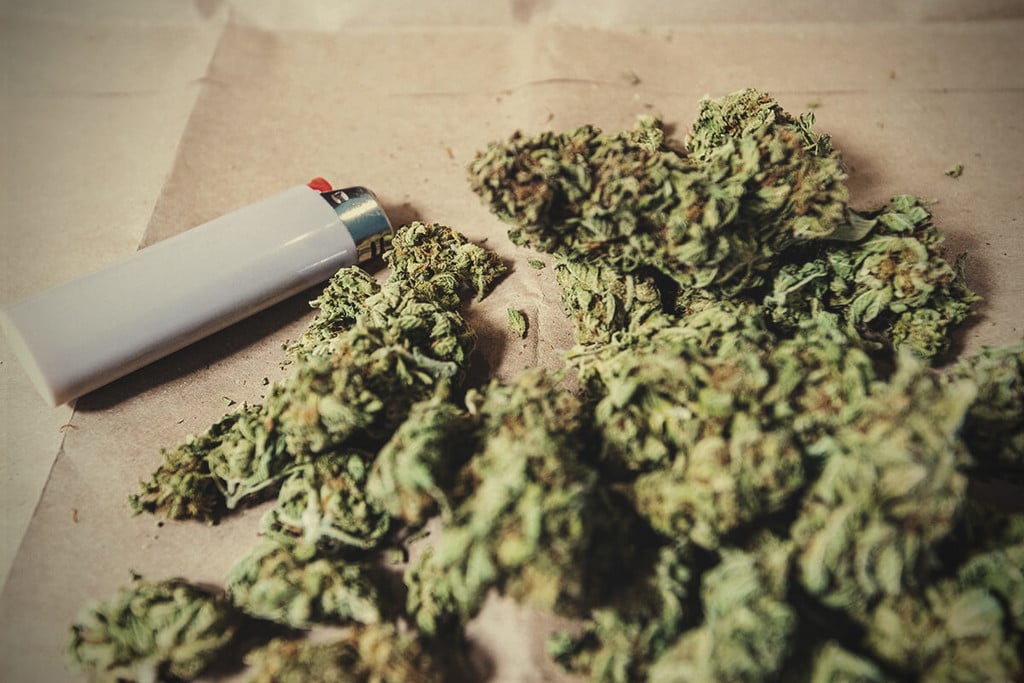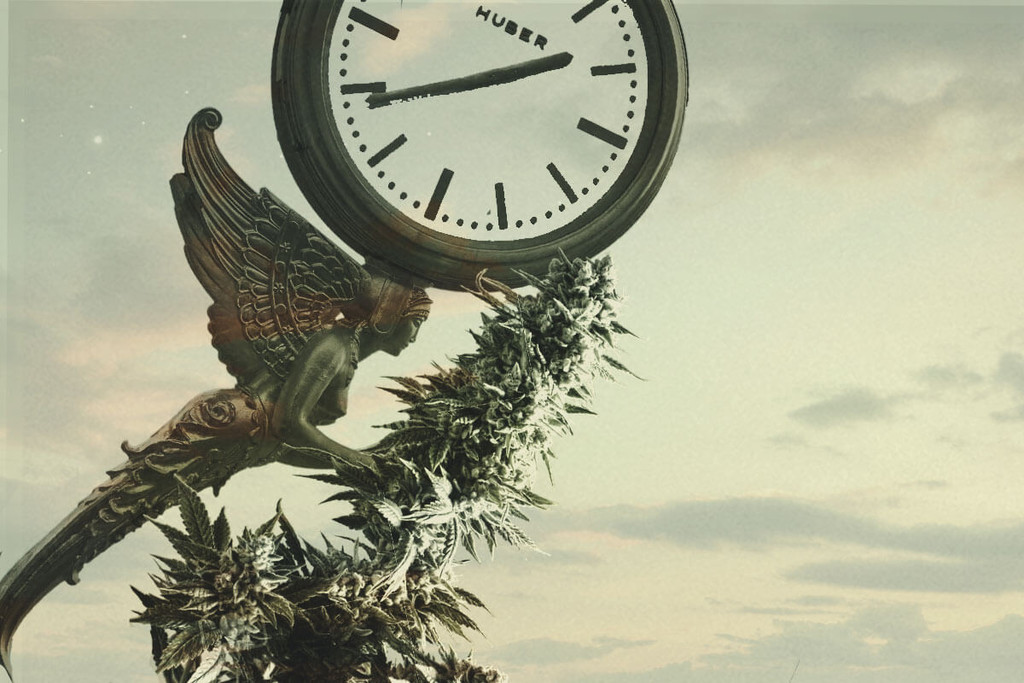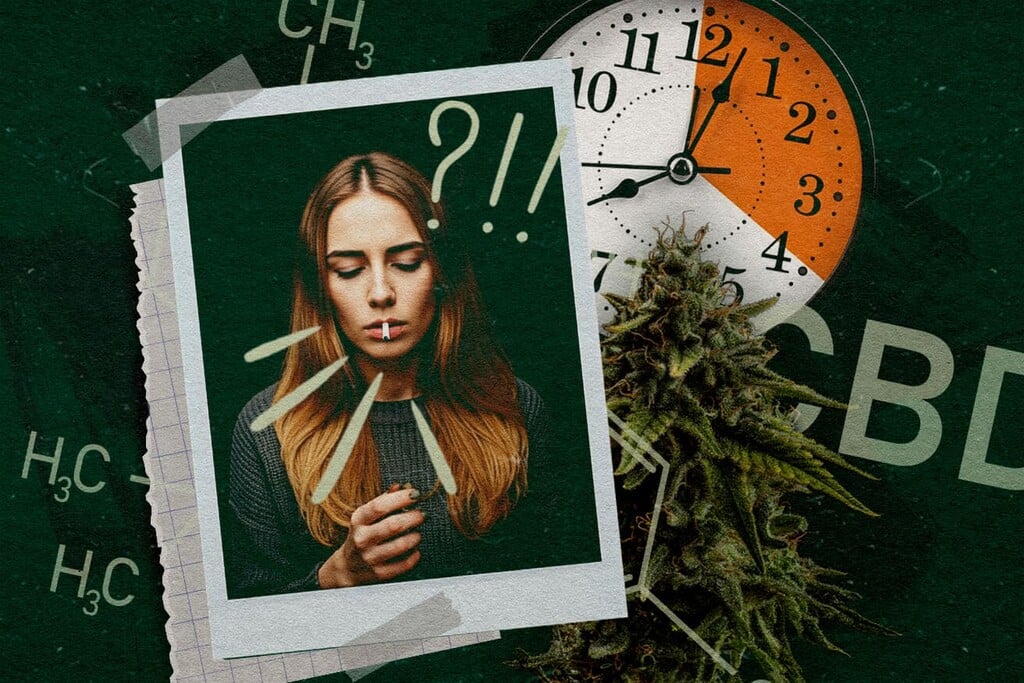.

Is It Safe To Smoke Weed Every Day?
Honest and informed conversation is essential to all good things, especially safe cannabis use. Here, we'll look at the potential consequences of smoking weed every day. Then, we'll explore some ways to improve our relationships with cannabis.
Stoners have a bit of a reputation for being lazy. While there is certainly an element of sitting around and giggling to getting high, it turns out that it can be a positive force too.
However, is smoking weed every day good for you?
In short, uncontrolled, chronic cannabis use is probably detrimental to some degree, and can lead to some sort of abuse and tolerance. Obviously, at Royal Queen Seeds, we love weed. And we think the best way to encourage responsible, safe, and happy cannabis consumption is by sharing as much knowledge as possible.
So, we’re going to look at the effects of cannabis on the brain and the potential negative consequences of chronic use.
Contents:
What Does Cannabis Do to the Brain?
THC interacts with the body’s endocannabinoid system (ECS) in a fairly straightforward manner. The ECS is found throughout the body and, though it isn’t fully understood, is thought to play a vital role in homeostasis (the body’s method of regulating systemic balance).
However, the influence of the ECS is much broader than this, and appears to be involved in memory, cognition, motor control, mood, and much more.
THC has an affinity for both CB1 and CB2 receptors. It is able to bind to CB1 receptors in the brain due to its structural similarity to the molecule anandamide, one of the body's endogenous cannabinoids that works as a neurotransmitter.
Anandamide (known as the “bliss molecule”) is made on demand and serves many purposes, including reward and learning. However, it is rarely available in high quantities and is broken down quickly in the body. THC, on the other hand, can be taken in large quantities and is not so easily broken down. This is why we get powerful, long-lasting highs that we can’t get from anandamide.
THC and Dopamine
THC does appear to be dopaminergic[1] (meaning it affects levels of dopamine), though its impact appears indirect, which may go some way to explaining how cannabis can cause dependencies without causing a full-blown physical addiction.
It is thought that THC affects dopamine levels by suppressing GABA inhibitors[2], although this is still conjecture.
Yet, while the links between THC and dopamine are poorly understood, it is important to consider this relationship before assessing the pros and cons of daily cannabis use.
Is Smoking Weed Every Day Bad?
Now that we know a little about how cannabis affects the brain, we have to ask the big question: Is smoking weed every day bad for you? And what is chronic marijuana use, anyway?
In order to answer these questions, you’re going to have to compare the following information with your own habits and experiences. One simple piece of advice, though: If you feel you would like to stop or cut down on your cannabis use, then you should.
However, if you’re happy with it, but wonder nevertheless if you smoke too much weed, there’s a lot to consider. Objectively assessing one's own behaviour is basically impossible, but we can get closer to the truth.
First, it’s worth figuring out if your cannabis use autumns into the category of cannabis abuse and dependency.


What Is Chronic Marijuana Use? Exploring Cannabis Abuse and Dependency
Cannabis abuse and dependency can be tricky to define, as they don’t come with the telltale signs of other, physical addictions. There is a slight difference between them, with abuse being how the drug is used and the effects it has, and dependency being how hard one finds it to stop using.
However, often the two come hand in hand. There are still many things we can look for when trying to discern whether our cannabis use is a mutualistic love affair or an unhealthy dependence.
One of the first and most obvious signs is this: Do you find yourself smoking even when you don’t want to? Do you often wake up in the morning and think that you’ll have a day off, only to find yourself stoned by the afternoon?
Are you spending money on cannabis when you can’t afford it? Is it stopping you from doing other things that you’d like to do? Or, do you find it enriches the things you love and doesn’t interfere?
Asking questions like this is a good start in understanding your relationship with cannabis.
-
What Causes Cannabis Dependency?
Drug dependencies occur when the receptors for neurotransmitters become desensitised. It is inextricably bound up with tolerance; as tolerance increases, so too can dependency.
As daily users flood the brain with THC, CB1 receptors will, over time, become desensitised to it. This means the amount of receptors available will decrease. So, if we want to get just as high as before, we have to take much more. When we do this, the receptors will continue to decrease. This causes tolerance, and is self-fulfilling if left unmanaged.
For dependency, it goes a little deeper than this, and often includes dopamine. When we take drugs that make us feel good, that activates the brain’s reward system. It essentially teaches us that taking the drug is a good thing, and we should make it into a habit. Dopamine is the master of reward.
The more often your brain associates an activity with dopamine release, the more it wants to do it. Couple that with desensitisation of the CB1, CB2, and dopamine receptors, and you have a recipe for dependency. Not only does your brain crave this thing more, but it gets less from it each time too. Then, as you take more to fulfil that craving, the higher amount further entrenches that dependency.
Thankfully, with a little willpower it is possible to manage this, and stop it occurring. The benefit is twofold: no debilitating dependency, and more satisfaction from your smoke!


What Are the Long-Term Effects of Heavy Cannabis Use?
There are numerous potential negative effects associated with long-term, regular cannabis use. It’s worth noting that these are not guaranteed, and different people will exhibit different long and short-term effects.
Of course, we’re not just talking about mental effects either. Cannabis, especially if smoked, can have detrimental physical effects too. And bad news for blunt smokers; combusted cannabis is still full of carcinogens!
The following represents some of the potential long-term effects of cannabis use (predominantly smoking cannabis) referenced by medical institutions, drug abuse resources, and/or in high-quality studies:
| Heart[3] and lung[4] problems (though it can be hard to distinguish these from those caused by tobacco) | Weight gain[5] | Anxiety/depression[6], changes in mood | Worsening verbal memory[7] | Low motivation | Tolerance and dependence |
| Heart[3] and lung[4] problems (though it can be hard to distinguish these from those caused by tobacco) |
Weight gain[5] |
| Anxiety/depression[6], changes in mood | Worsening verbal memory[7] |
| Low motivation | Tolerance and dependence |
Some of these are worst-case scenarios. Nonetheless, they are still worth considering.
Moreover, addiction and dependency can cause a huge array of social and emotional problems themselves, including relationship breakdowns, job losses, financial issues, and depression. By taking away a person’s feeling of agency and control, drug dependencies can be highly debilitating.
What Are the Effects of Cannabis on Developing Brains?
As the brain is developing, the ECS is thought to play a crucial role, and so by artificially manipulating it, we are throwing it off balance at an important time.
The brain is far more malleable as it is developing, and therefore it is possible to change it, and for those changes to remain through adolescence. As well as increasing the likelihood of conditions such as psychosis and depression[8], there’s significant evidence that heavy cannabis use in adolescence can cause a considerate and irreversible decrease[9] in cognitive ability and memory.
Not only this, but the prefrontal cortex is rich in CB1 receptors. In heavy cannabis users, the grey matter in this area is known to be thinner than in control groups[10]. This is particularly prevalent in people who begin smoking in adolescence. Among other issues, there are strong links between this and psychosis.
The takeaway from this is that people should wait until adulthood to smoke cannabis. We don’t advise smoking it at all until the brain is fully developed. However, if you are going to, use it with moderation. You’ll thank yourself later in life!
How To Stop Smoking Weed or Reduce Cannabis Consumption
You may want to know how to reduce your use, or how to stop smoking weed cold turkey. If so, there are plenty of ways to go about it.
-
Tolerance Breaks
Tolerance breaks are a great way to keep your cannabis use in a healthy state. By reducing the brain’s tolerance, you reduce the likelihood of dependency, and all the negative effects associated with that. Not only do you save money, but you maintain the natural sensitivity of your neuroreceptors.
You can do it gradually or in one fell swoop. Doing it gradually involves cutting down the frequency and intensity with which you smoke. However, for those with a dependence or tolerance about which they are unhappy, stopping altogether can be much more effective. It’s one thing to not smoke, but it's quite another to try and maintain that motivation after a spliff!
Stopping for as little as 48 hours every 30 days can go a huge way toward managing tolerance and dependence.
Giving a tolerance break a go is a good way to figure out what your relationship with cannabis is really like. If you find it easy to not smoke for two days, then it’s far more likely your cannabis use is healthy. If, however, you find yourself yearning for just one little puff, it might be a sign you should really consider your habit.
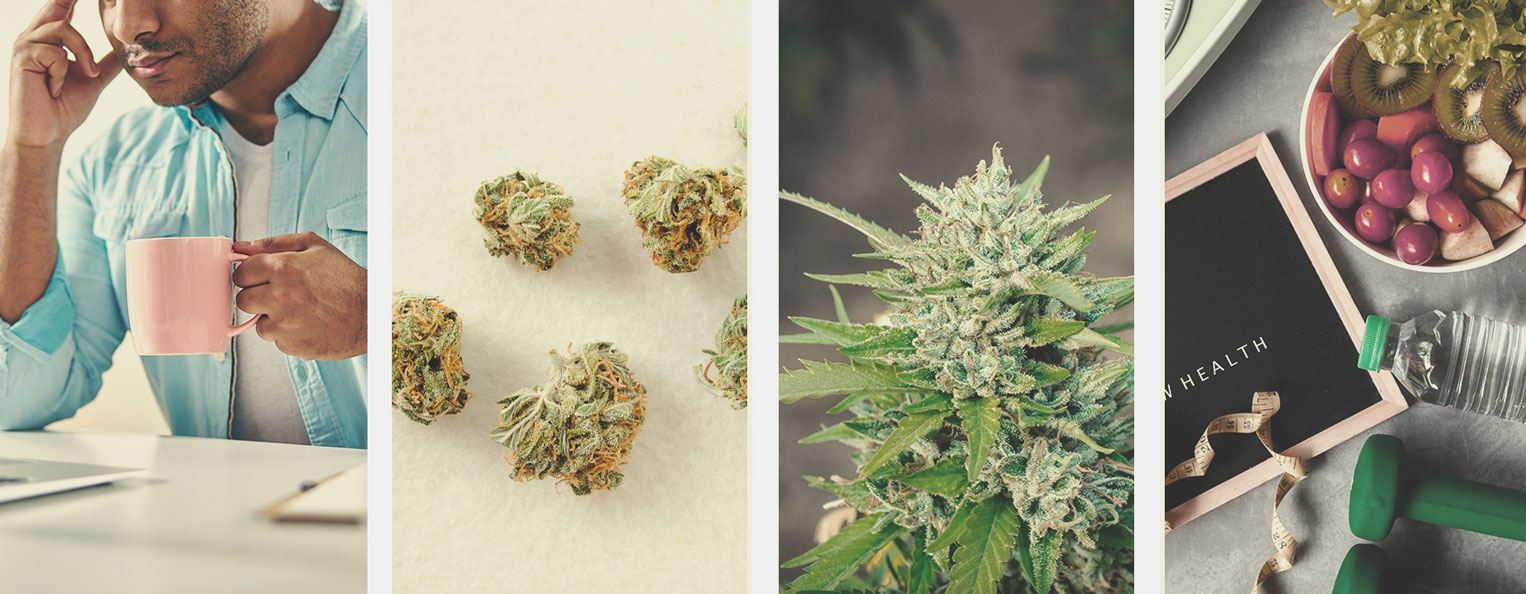

-
Microdosing Cannabis
Much like reclaimed scaffold-board tables, faux-filament light bulbs, and avocados, microdosing drugs has become very popular over the last decade.
Microdosing cannabis can be a great way to change your relationship with it. Not only does it give your receptors and lungs a bit of a rest, but it makes you more likely to enact other positive changes too. By being a little less stoned all the time, there’s a greater chance you’ll actually go on that run or start that project you’ve been thinking about.
By microdosing instead of stopping entirely, you get the mental buzz and increased creativity of cannabis, without the lethargy.
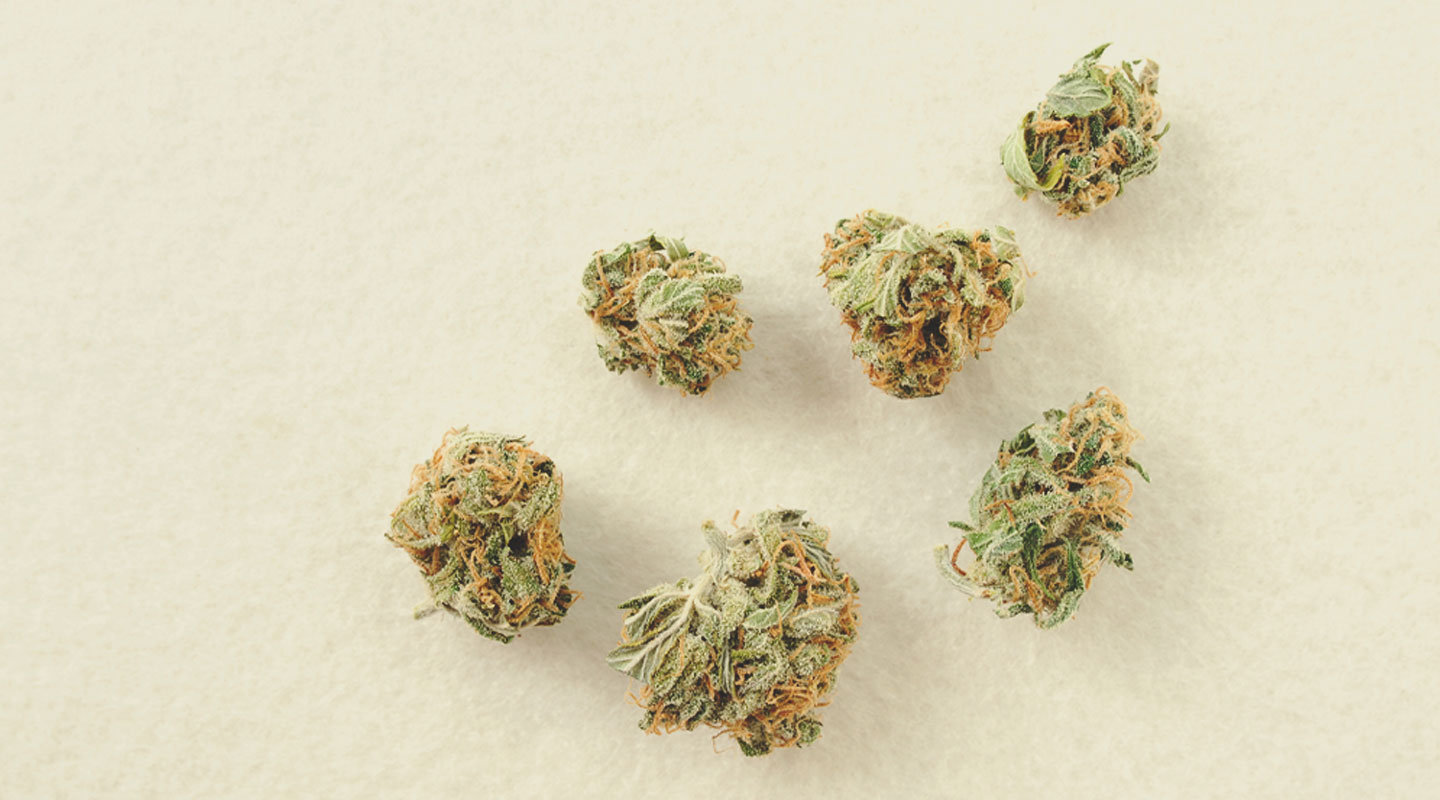
-
Use CBD Strains Instead
Using CBD-rich or CBD-exclusive strains can be a great way to cut down your (THC-rich) cannabis consumption. By vaping or smoking CBD weed, you still get to fulfil that craving and enjoy having a little smoke. And you get all the flavours too. This means that you can kick the THC without kicking the whole habit at once.
Moreover, CBD is thought to directly counteract the effects of THC. So if you’ve found that your cannabis habit has left you with some side effects, CBD could be a way to deal with some of those.
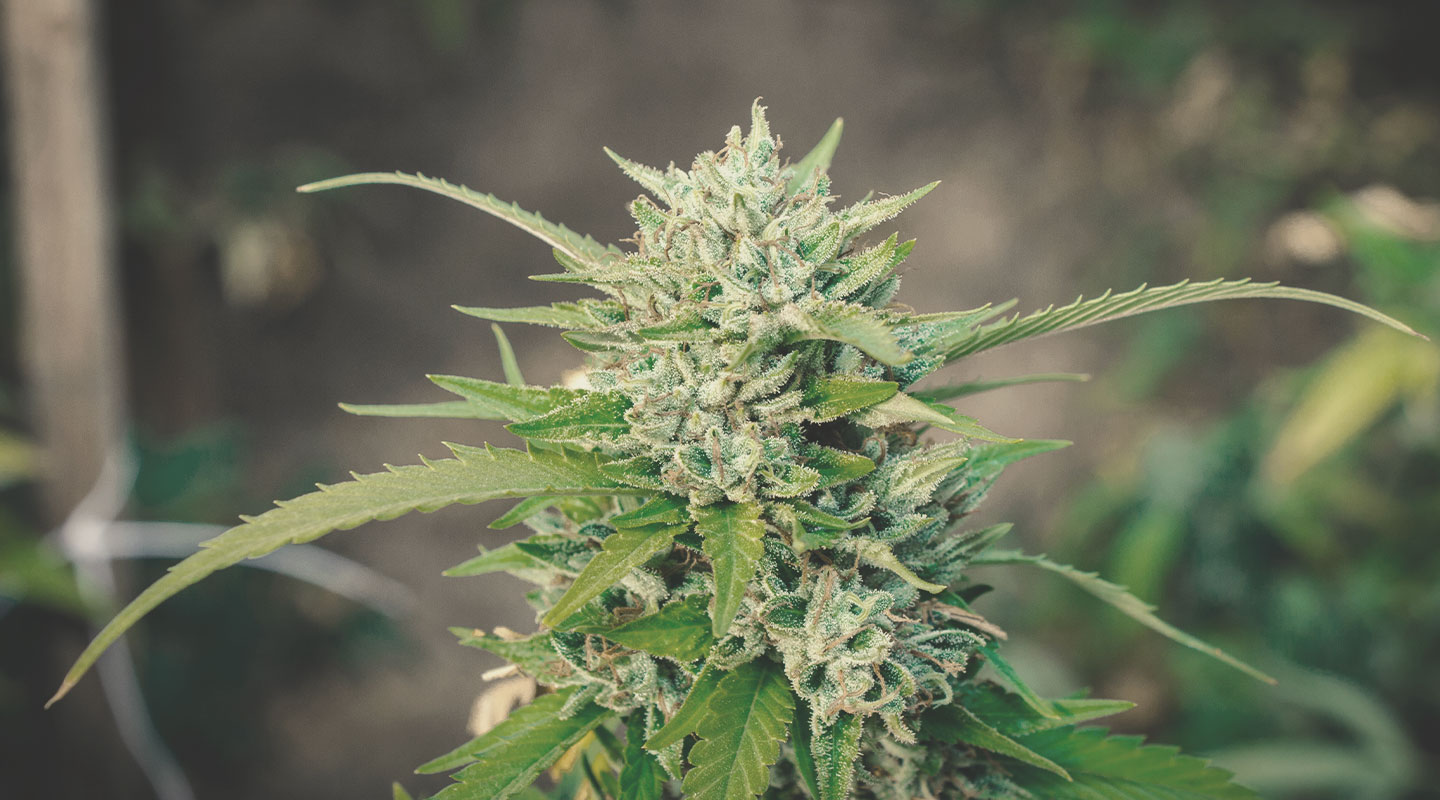
-
Lifestyle Changes
All the above methods deal directly with cannabis. However, sometimes thinking too much about it will only encourage the relationship. Forgetting about it and filling your time can be one of the best ways to stop smoking so much weed.
You’ll hate us for saying it, but exercising or getting a hobby will change your life. Even if it doesn’t stop you from smoking weed, you’ll find yourself far more enriched nonetheless.

Because that’s the thing; many of the potential negative effects of using cannabis everyday are indirect. Depression, laziness, a lack of meaning; you’d feel all these things if you sat on the sofa watching cartoons all day whether you smoked weed or not.
Cannabis can be a fantastic, enriching addition to life, but it can’t replace the meaningful contents of a life. Whether you use drugs or not, we all have to work for our own happiness.
Promoting Responsible Cannabis UseRQS emphasizes the importance of responsible cannabis consumption.
While many individuals use cannabis frequently without complications, some may be susceptible to developing adverse behaviours. We believe the herb should enhance one’s life, not hinder it.
Responsible use involves limiting consumption to adults only, refusing to operate cars or machinery while under the influence, and making an effort to resist abuse.
Stay Cultivated.
- Delta 9-tetrahydrocannabinol increases prefrontal cortical catecholaminergic utilization and impairs spatial working memory in the rat: blockade of dopaminergic effects with HA966 - PubMed https://pubmed.ncbi.nlm.nih.gov
- Separate and combined effects of the GABA reuptake inhibitor tiagabine and Δ9-THC in humans discriminating Δ9-THC - PubMed https://pubmed.ncbi.nlm.nih.gov
- What effect does marijuana really have on weight gain? It's complicated https://www.sciencedaily.com
- Long-Term Effects of Smoking Weed: The Dangers of Marijuana https://americanaddictioncenters.org
- What effect does marijuana really have on weight gain? It's complicated https://www.sciencedaily.com
- Marijuana DrugFacts | National Institute on Drug Abuse (NIDA) https://www.drugabuse.gov
- Long-Term Marijuana Use Associated with Worse Verbal Memory in Middle Age - For The Media - JAMA Network https://media.jamanetwork.com
- Cannabis and psychosis: Neurobiology https://www.ncbi.nlm.nih.gov
- The effect of cannabis use on memory function: an update https://www.ncbi.nlm.nih.gov
- Cannabis use and progressive cortical thickness loss in areas rich in CB1 receptors during the first five years of schizophrenia - PubMed https://pubmed.ncbi.nlm.nih.gov


























